Children who forgot how to read and write during the pandemic
Many children in Latin America have not been able to access basic education for 18 months
They are already called "the lost generation": in a recent report, the UN warned that nearly 1 billion children around the world are at risk of significant "learning loss" due to interruptions in school attendance during the pandemic of covid. 19.
And that's not all: in many countries, the education system is about to collapse if, in addition to the pandemic, other factors such as climate change and internal conflicts are added.
An example of this crisis warned by the UN happens in India.
BBC journalist Divya Arya found that children in various regions of this Asian country "forgot to read and write" because they were prevented from attending school last year.
Radhika lives in the state of Jharkhand, where the digital divide is huge. And when the covid-19 pandemic forced schools to close, many children in public schools did not have access to devices that would allow them to continue their education remotely.
"It was really shocking to find that out of 36 children enrolled in a single elementary school course, 30 couldn't read a single word," says economist Jean Dreze, who has been analyzing the situation in this region of India since students were able to return home. the classroom.
In some parts of India, children are forgetting to read and write due to school closings
"If you don't forget to read and write, falling behind can be remedied. But if you forget the basics, by going back to the classroom and advancing to the next grade, the gap will be worse," he adds.
Latin American students
In Latin America, the picture is similar: according to the report by UNICEF, the UN's arm for children and adolescents, a week ago, around 86 million children have not returned to school, putting learning progress at risk and the levels of knowledge previously acquired.
"Over the past 18 months, most children and teenagers in Latin America and the Caribbean haven't seen their teachers or friends off screen. Those who don't have the Internet haven't seen them directly," explains Jean Gough, UNICEF's regional director for the Latin America and the Caribbean.
He adds that there is not only a risk that children will not learn basic life skills, but also that they will never return to formal education.
"Virtual education must continue and improve, but it is clear that during the pandemic the most marginalized families did not have access to learning", he adds.
The reality is even harsher among the most vulnerable groups, for whom dropping out of school was a problem before the pandemic.
"Every day outside the classroom brings the most vulnerable children and adolescents closer to school dropout, gang violence, abuse or human trafficking," he adds.
"My school failed"
For many of the students, during these past 18 months "nothing was learned".
BBC News Mundo, the BBC's Spanish news service, spoke to some school-age children in parts of Latin America who were affected by the lack of connectivity and low school attendance during the pandemic.
One of them is Richard Guimarães. He is 15 years old and lives in San Rafael, an indigenous community located two and a half hours from the city of Pucallpa, in the Peruvian Amazon.
His dream is to become a graphic designer.
"My parents make crafts and I learned to weave and make various things that we sell in the market," Richard tells BBC News Mundo.
Richard Guimarães lives in the Amazon region of Peru
"And I want to learn how to do it better," he adds.
A year ago, Richard was in high school when the covid-19 pandemic caused millions around the world to stay at home.
"In the last year and a half I haven't learned anything," he complains.
Before the pandemic, he attended school from 7:30 am to noon.
"At that time, we studied 12 subjects during the week", he recalls.
But after the pandemic started and classes were suspended, everything became more difficult.
"We went from 12 subjects to just six," he says.
The system established to remedy the crisis worked like this: every month the teachers came to their city, left a kind of homework and the students had to do it and send the answers through WhatsApp.
Art, which is his favorite class, was reduced to drawings he made at home and sent to his teacher on his cell phone.
"My father makes a living from handicrafts and the sale of bananas, we live in a very remote area, which is why it is difficult to access the internet," he says.
As many of his teachers did not live near his community, he could only contact them by phone when he connected to the Internet. Also, some of the homework seemed confusing and sometimes even unintelligible.
According to UNICEF, 86 million children in Latin America and the Caribbean have not yet returned to school
Increased inequality
For many specialists in educational psychology and processes, it is clear that children need to return to the classroom as soon as possible.
The disappearance of this space for learning and socialization has been for many boys and girls - especially among families of lower sociocultural level - "a catastrophe".
"It's a catastrophe. It will take a long time to get over it," says Guillermina Tiramonti, an education specialist and researcher at Flacso Argentina, to BBC News Mundo.
"I'll give you an example: a boy who was in the first year of elementary school before the pandemic, and still hadn't been able to learn to read, now that he's back in school must finish the second grade without knowing the basics," he says.
For academics, it is not just the content that has not been learned or incorporated, but something more important: rescuing the habit of learning.
"The loss of knowledge is not just not having learned certain contents, but the fact of losing the rhythm, the habit, the school routine", he emphasizes.
"Take linguistic codes as an example. Children from lower sociocultural sectors are not used to these complex codes and only have access to them at school, where they are essential for the advancement of knowledge. They do not have access to them at home."
For many analysts, special projects must be created to make up for lost time during the covid-19 pandemic
For children who have not been exposed to these codes for two years, cognitive decline is very high, concludes Tiramonti.
Revised Objectives
As pandemic restrictions are lifted in different regions, reopening schools has become a priority for many governments. So far, the UN report indicates that 47 million children have gradually returned to the classroom.
And the next step also highlights the great challenge of updating children with the goals they should have learned in this year and a half.
"Children's education was lost in the effort to protect the lives of the entire population from the coronavirus," explains Irma Martínez, education specialist at the NGO Human Rights Watch.
But if opportunities arise in crisis, this is the time to rethink some of the assumptions of schooling and the educational system as a whole, argue experts.
"The goal should not simply be to go back to the way things were before the pandemic, but to correct the flaws in systems that have long prevented schools from being open and receptive to all children," adds Martínez.
On this issue, Tiramonti is categorical: "We cannot go back to school and pretend that nothing happened," he says.
"It is necessary to carry out an assessment, see what happened to the children, what the losses are, what are the learning problems they have and set up a program for them to recover this basic knowledge to move forward in their school journey."
"It takes a lot of professional work to find ways to make up for lost time," he says.
Less than a month ago, Richard Guimarães is one of tens of thousands of students who have returned to the classroom after almost a year and a half.
And although he's happy, he knows it won't be easy: "Now we're studying subjects that we didn't study in the pandemic and it's been difficult to keep up with them. It's like starting everything from scratch."
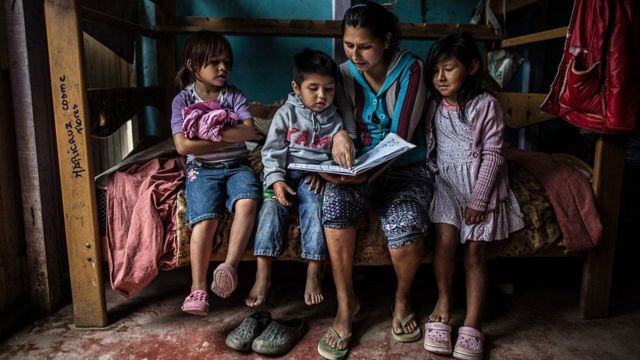
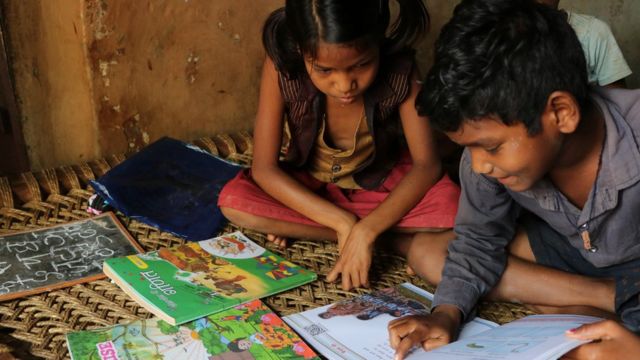
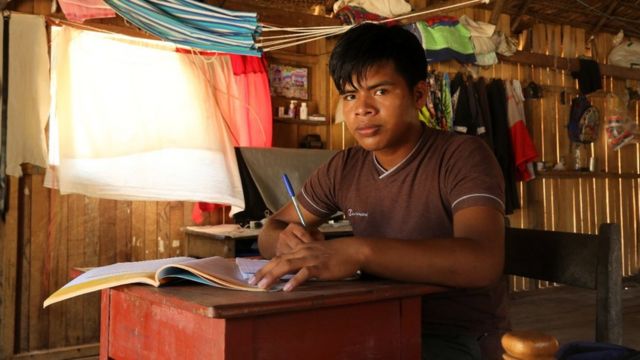
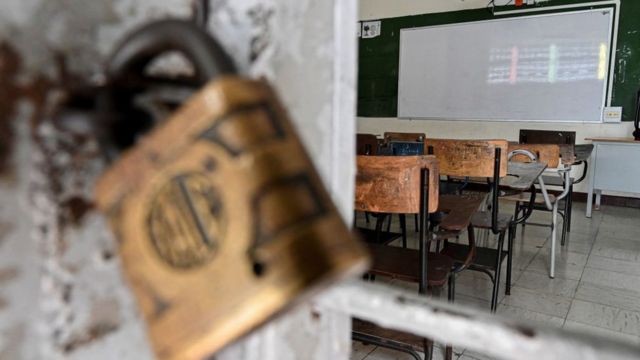
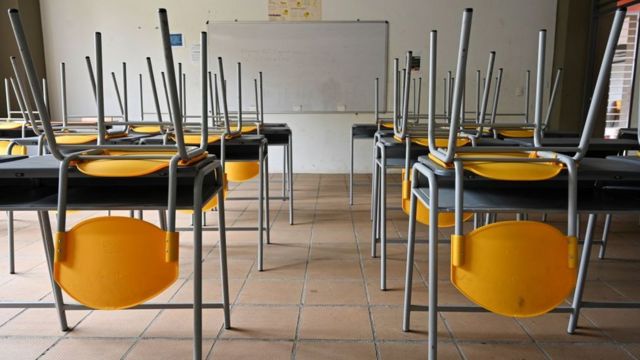

No comments:
Post a Comment